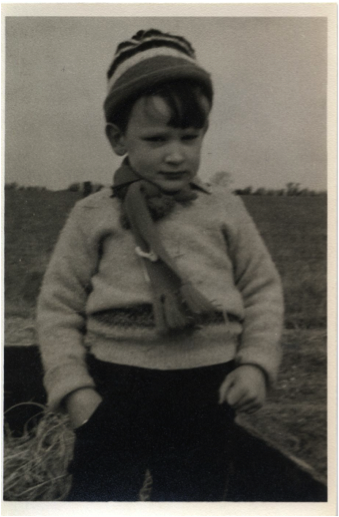
If money and time were no object, what research idea would you investigate?
I’d continue doing what we are currently doing with a larger group: investigating those quirky, odd systems and/or adaptations that have no immediately obvious, intuitive explanation.
Who was your PhD supervisor and what was the best thing you learned from them?
My PhD supervisor was Nick Davies (University of Cambridge), who taught me the value of asking questions that can be resolved by simple experiments, and of treating colleagues respectfully.
Which paper of yours is the one you think should have attracted more attention?
A paper published in the Journal of Animal Ecology describing a mutualistic relationship involving orb-weaving Philoponella spiders that build webs among the silk tangle threads of their Psechrus spider hosts. My field experiments, conducted in Papua New Guinea, demonstrated that Psechrus with Philoponella acquired more weight than those without them. I thought it was such an interesting system, a view evidently not shared by others.
What is the worst review you’ve ever had?
The initial reaction is to choose a devastating review of what you thought was a rather clever manuscript – but of course these are great reviews because they prevent more widespread humiliation. The worst reviews are those that confidently make negative claims that are either factually incorrect or unsubstantiated.
Which other evolutionary biologist’s work do you most admire and why?
There is no single person, but John Maynard Smith had a significant, personal impact. During my protracted and somewhat discouraging search for somewhere to undertake a PhD, I visited Paul Harvey at Sussex University and he suggested I give a seminar. I knew John Maynard Smith was at Sussex, but assumed he had far more significant things to do than listen to my seminar. I couldn’t have been more wrong: he sat in the front row; was the first to ask a question; and joined us for the subsequent drinks and dinner. It was an incredibly memorable occasion, and while I remain in awe of his contribution to evolutionary biology, I really appreciated his enthusiastic engagement with myself and other less experienced biologists.
Dawkins or Gould?
I admire Gould for his writing style and reach of scholarship, and Dawkins for his ability to capture the essence of the idea.
What would be your fancy dress costume of choice?
What an interesting question.
What is the worst job you ever had?
As an undergraduate, I supported myself by working as a waiter in restaurants and hotels, which was rarely edifying. In order to gain experience as a cocktail barman, I took a job at the Munich Steak House in Brisbane. It wasn’t very classy – we were obliged to wear Lederhosen, Fluffy Duck was the cocktail of choice, and the cavernous restaurant was decked out to a German theme that included, curiously, huge banners promoting Heineken beer. My boss, several years my junior, sufficiently irritated me that he eventually fired me.
What was the last (non-science) book that you read?
I recently read (and recommend) Burial Rites (Hannah Kent), People of the Book (Geraldine Brooks) and The Uncommon Reader (Alan Bennett). I think evolutionary biologists would enjoy reading Mr Darwin’s Shooter by Roger McDonald.
If you had to ask an invertebrate to fight for your life, which species would you choose?
A honeybee worker – they are greater learners and show admirable commitment in a tight corner.
Beer or wine?
The two aren’t commensurate: wine is no match to an icy cold beer at the end of a hot day (even if you’ve done nothing more strenuous than read a book). But in other conditions, a very dry white (not Chardonnay) is hard to beat.
Tell us a secret that your colleagues don’t know about you
I wish I could.
Mark Elgar is Professor of Evolutionary Biology in the Department of Zoology at the University of Melbourne. Originally from Queensland, Mark established his reputation in the field of behavioural ecology with work on vigilance in birds and on sexual cannibalism in spiders, but his research covers a vast range of study questions and systems broadly under the banners of sexual selection, social behaviour and chemical communication. For more on Mark’s research click here.